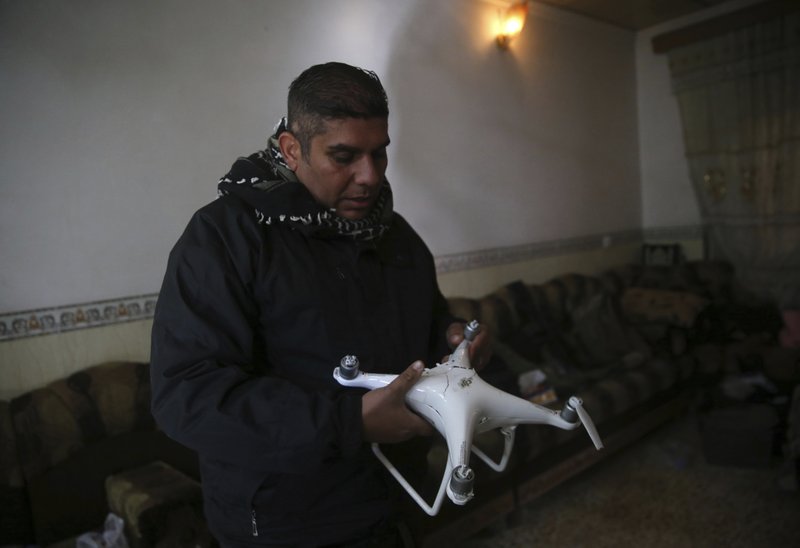MOSUL, Iraq -- With heavy weapons less useful in the dense urban alleyways of Iraq's second-largest city, local intelligence is growing in value.
Special forces on the front lines in Mosul are beefing up efforts to win civilians' trust, handing out food and medicine and gleaning real-time information about the extremists they are fighting in pitched, house-to-house combat.
In doing so, officers are also taking on classic counterinsurgency roles, becoming actors of local governance, addressing grievances and dispensing swift battlefield justice.
The offensive to free Mosul of militants with the Islamic State extremist group is now in its second month, and progress has slowed as troops try to avoid mass civilian casualties that could give the impression the Shiite-heavy military was riding roughshod over the city's majority Sunnis.
While tens of thousands of civilians have fled the fighting, more than a million remain in their homes -- some because of official requests by the government to stay there, others preferring the risk of crossfire to spending the winter in cold displacement camps.
In the Bakr neighborhood, parts of which are still contested, civilians lined the streets. Smiling children waved and greeted the troops, while younger men and elders watched convoys of Humvees pass with an air of skepticism.
Automatic rifle fire and heavy machine guns blasted all day from both sides, while mortars lobbed shells across neighborhoods. In the dusty wasteland to the east, a family pushed a relative's body on a cart to an aid station.
Part of the intelligence gathering is rough -- in the Samah neighborhood, soldiers arrested at least two suspected Islamic State militants, wrapping T-shirts over their heads and beating them in the street as they dragged them off. Not every combatant shares the government's optimism that sectarian reconciliation can happen in Mosul. "Why do you speak to them? They're all [the Islamic State]," one soldier said of civilians leaving homes to visit relatives farther from the fighting.
But the softer approach, as advancing forces have learned countless times in modern warfare, can yield more value, and keeping civilians on one's side has become a major part of operations for Iraq's special forces, known officially as the Counter Terrorism Forces.
Lt. Col. Ali Hussein said his forces have strict orders to take care of civilians to win the peace, but that they went a bit further, buying medicine for the old and infirm in the Bakr neighborhood.
"We pay with our own money; it's the humane thing to do," he said. "It's a modest neighborhood, and we have to keep a good reputation and show the civilians we are on the same side -- Daesh has brainwashed them for two years," he said, using the Arabic acronym for the group.
Troops also listen in on Islamic State radio traffic, where they can sometimes hear the extremists directing suicide bombers who can't see through the heavy armor plating protecting their moving vehicles. Many of the dialects are foreign, including Gulf Arab and Egyptian.
Islamic State forces as well, driven underground and unable to group into formations for risk of attracting airstrikes, also realize the importance of information. On Friday alone, they sent three reconnaissance drones to scout positions in the district -- the same number as over the previous two weeks.
"It was a big push, much more than normal," Hussein said, showing off a damaged commercially available DJI Phantom 4 drone the size of a record player.
"We shot down two."
A Section on 11/28/2016

